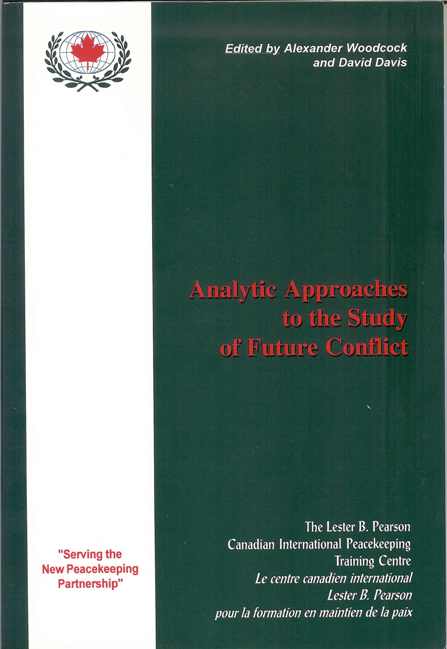
Published by The Canadian Peacekeeping Press, 1996, 300 pages, ISBN #1-896551-10-6.

Geo-political decisions can be critical determinants of success in war and peace. These decisions are based on predicted psychological and sociological responses by the various individuals and groups in the decision environment. For example, mental models are used in deciding whether to display our naval "presence" in a foreign port or whether a discussion on the golf course would be more effective. However, in constructing consistent policies over long periods of time that involve the conflicting interests of many countries, the complexities often overwhelm the mental models. In evaluating proposed actions, questions should address the immediate impact of an action, the long term impact, the potential for diverse impacts throughout the populations of interest, and the consequences of previous actions by other parties in the decision environment. A computer implementation that combines and extends the mental models might be useful; however, designing such an implementation is a hard problem. This paper presents a philosophical framework for modeling psycho-social attributes at the theater level and develops some of the necessary structure for a model.
More information can be found here.
If you arrived here using a keyword shortcut, you may use your browser's "back" key to return to the keyword distribution page.
| HARTLEY
CONSULTING Solving Complex Operational and Organizational Problems Dr. Dean S. Hartley III, Principal |
|